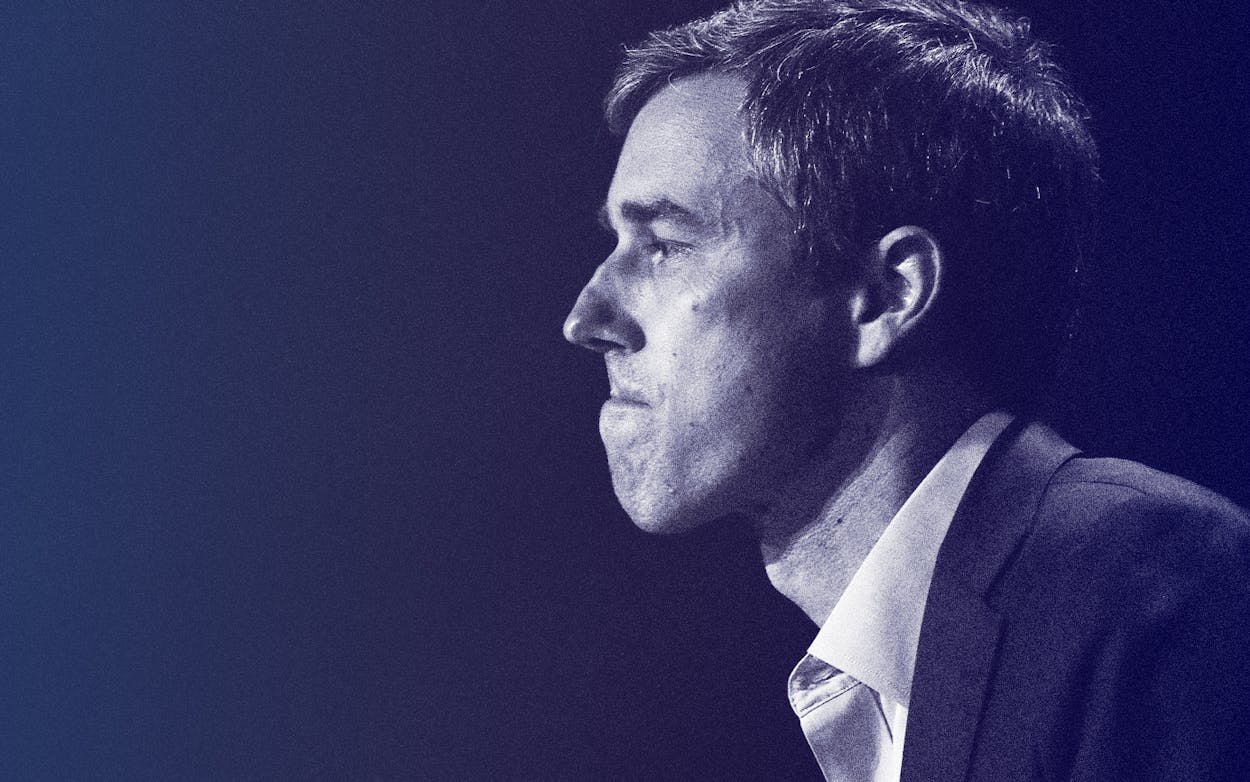Many of the Beto O’Rourke faithful in Texas, people who supported him during his 2018 Senate race, have now reached the same conclusion: Beto should drop out of the presidential race. In a Quinnipiac poll from early June, 60 percent of Texas Democrats said they preferred that O’Rourke suspend his presidential campaign and run against Senator John Cornyn instead. Just 27 percent said they’d rather he continue his presidential bid. Since then, his national poll numbers have dropped significantly—one recent poll of New Hampshire voters found that O’Rourke had 0.0 percent support in the state. (New Age star Marianne Williamson came in at 1.2 percent.) His second-quarter fundraising amounted to a disappointing $3.6 million, placing him between Amy Klobuchar and Jay Inslee. Over the weekend, the Washington Post collected a number of brutal quotes from former supporters who want O’Rourke to come home: “It was an extremely arrogant act, running for president after the career that he’s had,” said Ryan Rosshirt, the vice president of the Austin Young Democrats.
Last year, I wrote that I hoped O’Rourke wouldn’t run for president. But I was also confused about why he wanted to. He may only have had a puncher’s chance of beating Cornyn, but it seemed like he was exchanging a 1-in-5 bet for a 1-in-25 bet. He was also trading an environment where a lot of people wanted him to succeed for one where a lot of people wanted him to fail.
Moreover, a lot of what worked well for O’Rourke in Texas seemed unlikely to do so in a presidential primary. For example, the fuzziness around his positions and ideology made him acceptable to a surprisingly large number of Texas voters who voted for him and Greg Abbott. But that’s not what partisan Democrats are looking for. Some want inspiring rhetoric, sure, but a lot of others are in the market for a candidate who’ll pick up the hatchet and start swinging. And O’Rourke’s resume is unusually thin for a presidential candidate—if elected, he’d have less relevant experience than any candidate since Lincoln, and arguably before then.
I keep thinking of a small moment that happened shortly after O’Rourke launched his bid. On March 17, shortly after he announced, O’Rourke found himself in Madison, Wisconsin, facing a voter with a similar complaint to that of Sam Elliott’s character in The Big Lebowski. In an exchange recorded by a CNN reporter, he was pressed on a behavior the Midwesterner found distasteful: “Can you promise during your campaign to not use the F word, particularly in front of kids, like last weekend?” No more pendejos, please.
O’Rourke told the voter he agreed the time for foul language had passed. “Great point. And I don’t intend to use the F word going forward, thank you.” That wasn’t enough for the voter, who kept chastising him: “You don’t intend to,” the voter said, “so don’t do it.” OK, OK, O’Rourke said. “Thank you. Yes. Point taken. And very strongly made, so I appreciate it.”
Iowa is a place where candidates struggle, neighborhood by neighborhood, to build the thinnest possible margins over their opponents. The freewheeling style of O’Rourke’s Senate campaign—so heavy on style—doesn’t work in a place where a good day means winning over five great-aunts in Waterloo. No more driving around Texas, skateboarding, and petting dogs on Facebook Live—instead, he faces a lot of voters with highly parochial concerns, and the grind of a conventional campaign. On Monday, the campaign announced it would be opening 11 new field offices in Iowa.
But can O’Rourke come home? Surely, a lot of Texas Dems wish he had run against Cornyn from the start, and a lot of them would welcome him back, but it’s far from clear he could run strong if he drops out now. Part of Cruz’s weakness in ’18, after all, was that he had already expressed a strong preference not to have his job anymore by running in a presidential primary. Texas Dems are also a parochial bunch. The campaign has taken a toll on O’Rourke’s brand, and it’s not guaranteed he can restore it.
If O’Rourke continues to run weak and then drops out before Andrew Yang does, that’s not an especially good platform for a new Senate bid. Which is to say nothing of the fact that he’d garner a lot of resentment from supporters of other Senate candidates, like MJ Hegar, for cannonballing back into the pool. (A lot of this also applies to Julián Castro, the other underperforming Texas Democrat in the race.)
So his best bet might still be to stay in the presidential race. And there are more than two hundred days till Iowa votes, so who knows? Anything can happen. After all, another recent Texan ran for president based on his statewide performance, made a big splash, sank in the polls when his party thought him too mushy on the issues, underperformed at the debates, and then crashed out. His name is Rick Perry. Today, he’s the secretary of energy.
- More About:
- Politics & Policy
- John Cornyn
- Beto O'Rourke








